Tosh Berman's Blog, page 215
September 12, 2014
Lun*na Menoh Book Signing and Fashion Show at Kohn Gallery September 20, 2014
ARTBOOK | D.A.P. + Kohn Gallery + Tam Tam Books invite you to join Lun*na Menoh For a Fashion Show + Book Signing with authors Lun*na Menoh and Leslie Dick, in celebration of: Lun*na Menoh: A Ring Around The Collar

Saturday, September 205 to 7p.m. (fashion show at 5:30p.m. sharp) Kohn Gallery1227 N Highland AveLos Angeles, CA 90038
Published on September 12, 2014 17:16
September 12, 2014

September 12, 2014
If I have one addiction, it is the sweet addiction of taking two or three baths a day. In the past, this was not a big deal or a person would barely raise an eyebrow about it - but alas, us citizens of Southern California are experiencing a drought that is severe, and more likely (and we have to be honest here) will kill us. I can imagine in the near future that visitors will come to visit the landscape, and it will be full of skeletons with their skulls in a dried ditch. So, there is a certain degree of guilt now when I take a full bath or two (or three).
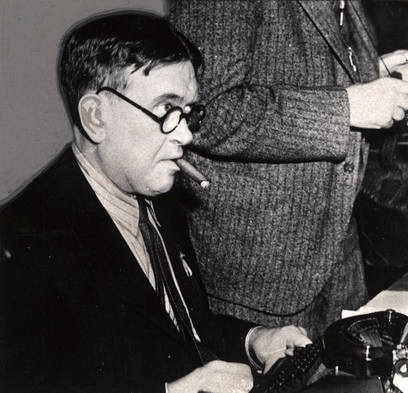
What I have done is actually put an extra bathtub in my bathroom. When I either flush my toilet or use the bathroom sink, the water automatically goes into the main bathtub which is made out of fiberglass. Since I’m the only one who uses the bathtub I’m not concerned if the toilet water is slightly dirty, or if there is some strain of toothpaste from the sink that ends up in the main tub. The other tub, is used for the evening, and what I do is to transfer the bath water from the original bath to the second tub. Meanwhile, whenever I walk by the restroom, and of course due to my liquid diet, I need to consistently use the toilet. So the water supply is reasonably fresh for the main tub.
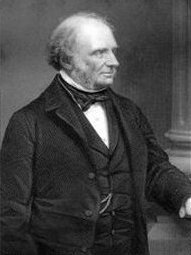
It is common knowledge that John Russell, 1st Earl Russell (who also served as Prime Minister) invented the bathtub for the full adult body. Before that, it was the size of a glorified dishpan. The “modern” bathtub came to the United States as recently as 1842, and it was reported that the tub was made from mahogany lined with lead. The bathtub for whatever reason was a controversial topic matter, until President Millard Fillmore had one installed in the White House. After that, bathing in a full bathtub became quite popular. Before 1842, Americans were tended to be dirty.
Since I have a tendency to use the toilet a lot throughout the night, I do have a sizable amount of water in the bathtub. For one, I don’t use shampoo or any type of soap. Soaking in water should be adequate enough to enable one to be clean. After I get out of my bath, I use a rubber hose to suck up the water from the tub and put the hose into the second tub. Similar to the practices of siphoning gas from a car. Also as a rule I don’t put anything unclean in the water, except perhaps a rubber boat, which I like to play with while taking a bath.
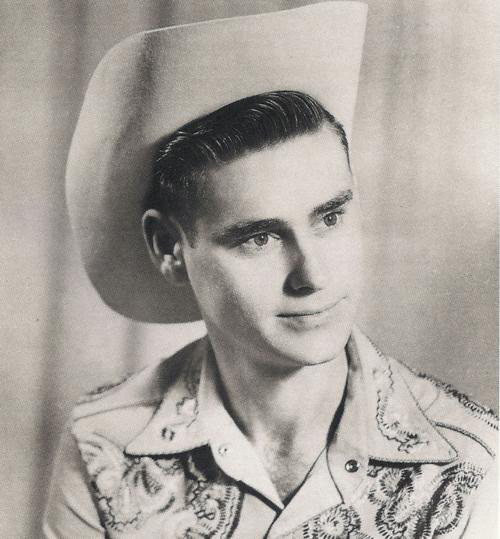
So, with this in mind, I can save water and still enjoy my bath time. There is nothing like having the music of George Jones in the background, specifically his early recordings around “White Lightning” and enjoying the landscape outside my window, which is basically a field of dirt and rocks. Once there was vegetation, but alas….
Published on September 12, 2014 13:53
September 11, 2014
September 11, 2014

September 11, 2014
When the twin towers fell, I was thinking about Barbarella. When something horrific comes upon me, I immediately turn to a pleasant thought, or to be honest, an escape. There is always that moment in time when you don’t know what’s happening, and you are on the computer or watching television, and you’re not getting news, but just the raw feelings of anxiety, fear, and numbness of watching the jet hitting the building over and over again. It becomes pornography after while, and I just prefer the Eros of Barbarella than seeing a death machine hitting a skyscraper. To have used that jet, not as a missile, but as a spacecraft going to another galaxy for the purpose of having sex with Barbarella. That is the purpose of machinery, to give and receive pleasure not death.

I had to go to work that morning and it was strange, because I worked at a bookstore, and there were a lot of customers that day. I think they wanted to be with other people, and somehow a bookstore fits the location and the need when those want to make contact with others. I remember a customer coming in and asking if we had books on the al-Qaeda. I never heard of them, and it took me awhile to get the correct spelling of the name to see if there were any books in print on that subject matter. Then shortly another customer came in and wonders if we had any books on Osama bin Laden. Again, a name that I never heard of. What was interesting is that a lot of people were either freaking out, or trying to comprehend what happened and what does that exactly mean in their lives. One thing I do remember was that the Sheriff’s department closed off traffic to the West Hollywood City Hall. I thought to myself of “why would anyone want to attack the city hall of West Hollywood?” Nevertheless, I think everyone who saw a plane in the sky thought it may be a missile of death.
The cultural significance was when Salman Rushdie came into the store to shop, and this maybe two or three days after September 11. He just wrote a book called “Fury” and he consented to sign the stock for our store. He was friendly, and very disturbed about the attack. One thing he said that made an impression on me, was that his novel (“Fury”) is totally not important anymore. He stated that his novel was the old New York, and now the attacks happened, his version of New York doesn’t exist anymore. He was likewise left stranded, because he couldn’t fly back to his home in New York City. At the time, I read a lot of observations by New York writers and all of them were interesting. The one that stays in my mind is a column in the Guardian newspaper, written by Jay McInerney, where he comments on the “before and after,” and although it is a stock statement or cliché, it is also totally understandable. For me, my fear for the then future would be how the U.S. would react to the crisis. Sadly, and not surprisingly, they did everything wrong. Not only Iraq, but our policies in dealing with the international world as well as the terribleness that is happening in the States. The terrorists sent us a box and the U.S. opened that box without any hesitation. All the evil things came out, and no one will never ever be able to box up the ingredients of pain. The other thing that stayed in my mind was that our best selling title at the bookstore that month was "Zagat Los Angeles 2001."
Somewhere down the line we traded our fantasies for despair and horror. We could have gone on the Barbarella route - to explore space and bodies, but instead we now have a world that is not enjoyable or aesthetically pleasing. Just dread, misery, poverty, and a century (the 21st) that will be my last...

Published on September 11, 2014 08:12
September 10, 2014
September 10, 2014

September 10, 2014
I have weekly meetings with the College of Sociology, which usually takes place at lunch time at various cafes and from time-to-time, in people’s homes. We had a meeting last week, which took place in my living room. The one thing we all have in common is that we strongly disagree with the theory of Surrealism. We all feel that the surrealist’s focus on the unconscious privileged the individual over society, and therefore ignores the social dynamic of experiencing the human that works in various social groupings. As a group we’re interested in “Sacred Sociology, and we study all manifestations of social existence where the active presence of the sacred is quite clear.” We have studied and critique the army, Marquis de Sade, English monarchy, literature, sexuality, Hitler and of course Hegel. Each one of us must present an essay or a lecture on a weekly basis.
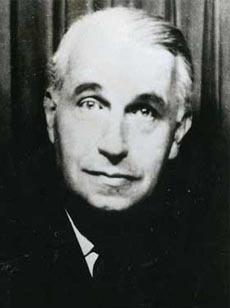
Within this group, there is a secret society where we meet on a monthly basis, always late at night, in the nearby forest. Our meeting place is by an oak tree that was once been struck by lightning. The “acéphale” (greek for headless) Society is devoted to perform certain practices, including nudity and eating raw meat of some sort. Using a flashlight in pitch blackness of the forest, we read aloud passages from Sade and Nietzsche. We see these two writers as liberators of the human spirit, and therefore in great secret, we celebrate their thoughts as it is written in their books. For purity, we read the works in its original language: German and French (for Sade). We all discuss carrying out a human sacrifice, but we couldn’t agree on who the executioner should be. Everyone of us in the group wanted to be sacrificed, and none wanted to be the executor.
We were fascinated with the art of “slow slicing, ” or better known as “death by a thousand cuts.” It was a type of torture and execution used in China from AD 900 until it was banned in 1905. During the execution, a knife is placed on the body, where the executors would cut pieces of the flesh, till the prisoner dies. Opium would be applied mostly to prevent fainting of the criminal. It’s important that the criminal is conscious of his or her body being stripped slowly. In general, these executions took place in the public square, where the citizens can watch the drama that is taking place in front of them.
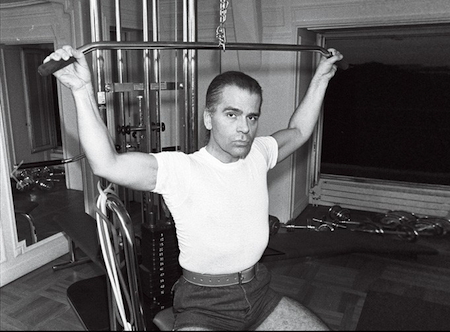
“We have in only two certainties in this world - that we are not everything and that we will die.” The ritual of death is fascinating and to share our thoughts within this group, is something that I treasure greatly. “Sacrifice is nothing other than the production of sacred things.” We tend to stay by the oak tree till the lightness of the dawn, and then we wander back to our homes, thinking it was just a dream. Alas, we know it isn’t because we all shared as series of moments reflecting on death, and therefore becoming more alive knowing that the moment will happen eventually. A good friend of mine told me once that “work is making a living out of being bored.” Thinking of death somehow frees me from boredom, and knowing that, makes living way much more intense. And on top of that, I don’t have a job, therefore I’m never bored.
Published on September 10, 2014 11:36
September 9, 2014
September 9, 2014
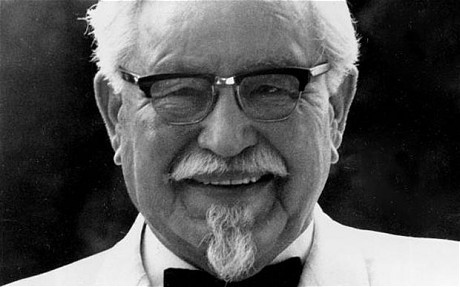
September 9, 2014
This may seem odd, but when I see an image of Colonel Sanders of Kentucky Fried Chicken (KFC) fame, I think of Japan. There are many KFC outlets in Japan, and each one has an incredible statue of Colonel Sanders by the entrance way. Although he did live, he doesn’t to me appear to be a real living person. Only an image. A ghost image to be honest. Also when I used to eat meat, I liked the Japanese version of KFC. For whatever reasons, which are a mystery to me, the Japanese taste seems different in these chain of fast-food stores. Everyone I know in Japan loves KFC. Now, I don’t love the food but I’m fascinated with the numerous statues of Colonel Sanders.
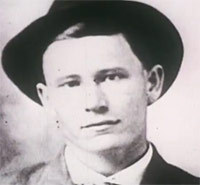
Colonel Sanders was born on September 9, 1890 in a small house in Henryville, Indiana. The population was 1,905 according to the 2010 census. Weather wise, Henryville has a humid subtropical climate, which means it has hot, humid summers and generally mild winters. In 1902, after his father died, he moved with his family to Greenwood, Indiana. He didn’t get along with his new step-father, and drifted away from his home life to move in with his uncle in New Albany, Indiana. His uncle worked for the city’s streetcar company, and got his nephew a job as a conductor. He then falsified his date of birth and joined the United States Army in 1906, where he was sent to Cuba. He was honorably discharged after only three months and then moved to Sheffield, Alabama, where another uncle lived. There he got a job as a blacksmith’s helper, and then eventually became a fireman at the age of 16.

He got married, had three children, and while being a fireman during the day, at night he studied law by correspondence and eventually became a lawyer. His legal career ended when he got into a fistfight with his client in a courtroom. He then moved to Jeffersonville, Indiana to work for the Prudential Life Insurance Company, where he sold life insurance. He then got fired for insubordination, and got a salesman job with the Mutual Benefit Life of New Jersey. Around this time, he started up a ferry boat company that was a success. He operated a boat that went from Jeffersonville to Louisville and back. He sold his business for $22,000 and used the money to launch a company that made acetylene lamps. Sadly this was not the right type of lamp, because Delco introduced an electric lamp that soon became the format that was sold at the time. He moved to Winchester, Kentucky to work as a salesman for the Michelin Tire Company, but lost that jobs when Michelin closed their New Jersey manufacturing plant. He then met the general manager of Standard Oil of Kentucky, who asked him to run a service station in Nicholasville. But like his luck, that too didn’t pan out, due to the Great Depression, and therefore the gas station had to shut down. However, if you failed once, try again. The Shell Oil Company gave a service station to Sanders rent free in return for a percentage of sales. It was here that he began to serve chicken dishes and at the same time he was awarded with the title of Kentucky Colonel, by the Governor of the state of Kentucky.

Colonel Sanders claimed that he had a original secret recipe for his chicken, and the only thing he had to admit to the public was that he used salt and pepper as well as 11 herbs and spices. The big difference between KFC in the U.S. & Japan is that in the States they use vegetable oil for frying the chicken. In Japan, the oil used is mainly the more expensive cottonseed and corn oil. Therefore the taste difference between the two cultures. So the colonel eventually sold KFC to John Y. Brown, Jr. And Jack C. Massey for $2 million. When many years later Brown and Massey sold the chain for $239 million.

Colonel Sanders died in 1980, but in truth did he even existed? After he was awarded the identity of being a Kentucky colonel, he immediately dressed himself as one. He grew a goatee and wore a black string tie with a white suit. He never wore anything else in public, and he in fact bleached his mustache and goatee to match his white hair and white suit. He had a heavy wool white suit for the winter, and wore a white light cotton suit in the summer time. Colonel Sanders wore this uniform for twenty years. So even after his physical death, he still lives on as the logo for KFC. But again in Japan, one is accustomed to see his features, his white suit, string tie, in front of 1,181 outlets as of December 2013. As of this writing, Kentucky Fried Chicken is well known as being the meal at Christmas time in Japan. Roughly one billion chickens are killed each other, and therefore I usually just have a salad on Christmas Day.
Published on September 09, 2014 13:41
September 8, 2014
September 8, 2014

September 8, 2014
“There is no me. I do not exist… There used to be a me, but I had it surgically removed.” It isn’t I can’t stand myself, but I’m on the surface extremely dull. There is no spice in my DNA to make me special. What I can do is re-invent myself to a better version of me. Or just start from scratch and make a totally new “me.” I tried to do my best to blend in with the crowd that I came to be accustomed to, but clearly they never took me seriously. All of them feel that I’m a performer, but for the heck out of them, they can’t remember one film or theater piece I have done. They know that I exist, but in what degree is totally beyond them.

As a card-carrying pataphysician, I have consistently been mistaken for Peter Sellers. The interesting fact is that we don’t look like each other at all. But still, I’m consistently reminded of him, due to what people think he or I looks like. A day doesn’t go by, where someone doesn’t comment on the resemblance of the dead late comic actor. If he was alive, I wonder if people would still make the comparisons between me and him. “The dead… are more real than the living because they are complete.” I suspect if I was dead, then I would get my own identity back. Again, even with that, my lack of uniqueness would be very difficult for someone to pin me down. Even my face is not mine, but a remembrance of someone else’s face or appearance.
To live in one’s shadow, is a traveler wandering in a neighborhood where he’s not invited, but accepted with closed arms. I have often appeared in front of an audience, but they expecting something else, or even someone else. It takes approximately ten minutes into my performance where the audience realizes that they are at the wrong show. After awhile, I believe “that the applause of silence is the only kind that counts.” Everyday I try to re-think myself in a new position where I find that I need to think what ‘my character’ would do in a certain or specific incident or plan. It is rarely that I consider “what I would do” but mostly ‘what would he or she does. ” And that is pretty much how I see the world. A fellow pataphysician has commented that “the theater, bringing impersonal masks to life, is only for those who are virile enough to create new life: either as a conflict of passions subtler than those we already know, or as a complete new character."
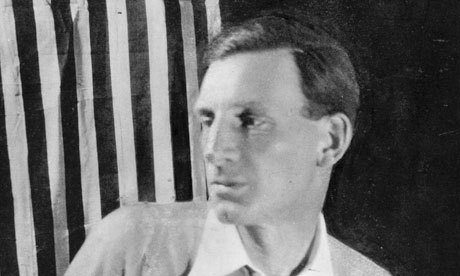
I was reading Siegried Sassoon’s poetry and I came upon a statement by him that touched me: “The fact is that five years ago I was, as near as possible, a different person to what I am tonight. I, as I am now, didn’t exist at all. Will the same thing happen in the next five years? I hope so.” The only occupation that I’m suitable for is acting. Sadly I can’t remember a written line if my very life been dependent on it. What I do is improvised anytime I find myself in a conversation with someone. I never know where or when the conversation ends, but I pretend that I do know, and I think the other person will just gently follow my lead - in a sense it is like dancing the waltz, where one leads the other.
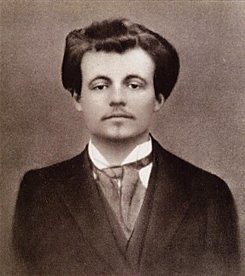
I wrote a play, that had one performance, so I guess one can call it a total failure. Nevertheless, the lead character stayed with me, and I adopted his language as my own. For instance I never say the wind or it's windy, instead I would say “that which blows.” Slowly but surely I built up a character that became comfortable to wear. But I was always aware that the things I said or do was based on another character - sometimes a fictional character. In the future (if there is a future) the play “will not be performed in full until the author (the royal we) has acquired enough experience to savor all it beauties.” I tend to see the world as a theater piece, and sadly, I’m the only one in the audience.
Published on September 08, 2014 11:31
September 7, 2014
September 7, 2014

September 7, 2014
“I have often wished I had time to cultivate modesty… But I am too busy thinking about myself.” I don’t have a lot of knowledge about the world that’s out there, but I do know myself, and in the end of the day, that is all I could offer you. Now, whatever that is good or not, is totally up to you. I can only offer what I know, which is not much. I feel like I 'm 250 years old, and man does my eyes feel heavy. All I know is that I’m a man of excellent taste, and “good taste is the worst vice ever invented. ” To stand out in the world is like asking someone to cut your throat. It’s not a nice world out there. In fact, it’s a jungle. And I wish I can inform you that I’m Tarzan, but I’m more like George of the Jungle.

I feel time is marching on, and I’m afraid that I will remain in the dustbin of history, which means totally ignored, and my writing is lost somewhere in the Central Los Angeles Library. I wake up with the greatest dread, knowing that I’m facing at least 12 or 13 hours of failure. “You know the horrible life of the alarm clock – it’s a monster that has always appalled me because of the number of things its eyes project, and the way that good fellow stares at me when I enter a room.” I feel time mocks me, and I know when my birthday just passed, people were thinking “there he goes…”
Not long ago I purchased a six albums (on vinyl) box set of Buddy Holly’s music. America has produced many talented people, but none is more important than Buddy Holly. He was a figure that was totally a modernist, specifically with his take on music making as well as appearance. The heavy dark rim glasses, with the beautiful suits and sweaters that he wore, it had a profound affect on me, because I had trouble seeing without my glasses. His imperfections became a symbol of perfectionism. He turned the negative into the positive, why that boy was a magician as well as a superb musician. His death, to this day, is exactly what I can’t take in. I cannot possibly understand why he went in that dinky airplane in a storm to get somewhere early, so he can do his laundry before the next show. Dandyism is a life-style, but it can also lead one to an early death. Yet, there can't possibly be a God, to let go such a brilliant talent. He tested against the elements, and lost. I obviously don't have his genius, but I do have the talent to lose, in a major and significant way.

“Hot water is my native element. I was in it as a baby, and I have never seemed to get out of it ever since.” I’m not worthy of living in a world that makes such great demands on my ability to create chaos that is my poetry. “Poetry is the deification of reality, ” and I feel like I’m standing against a wind machine, that is blowing me towards another direction, that I care not to go. “ART does not exist - So it is useless to talk about it - but! people go on being artists - because it's like that and no way else - Well - so what? ”
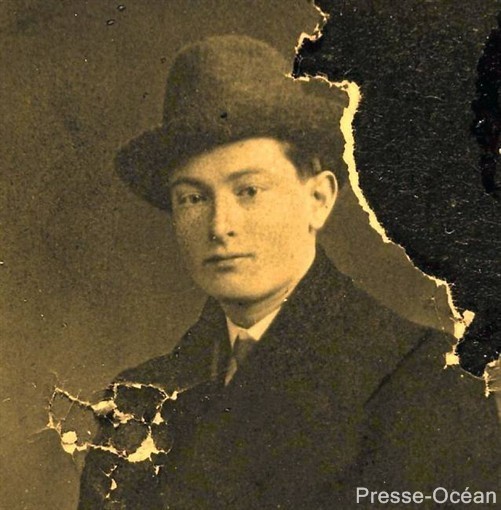
I never got over the death of Buddy Holly and especially Jacques Vaché. Two poets who I feel didn’t finish their work. At this point and time, I have outlived both, for many years. Holly was quoted in saying that “Death is very often referred to as a good career move.” Perhaps he’s right, but I feel I was left by the side of the road, and I don’t have a compass to tell me what direction I should go to. The art is to wander. “I’m not trying to stump anybody… it’s the beauty of the language that I’m interested in.” - Buddy Holly.
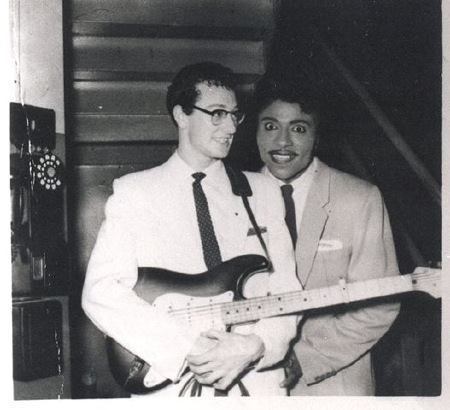
Published on September 07, 2014 13:11
September 6, 2014
September 6, 2014

September 6, 2014
The one film role that I wish I did, but didn’t, for the obvious reason, is to play Count Orlok in the film “Nosferatu.” I identify with the character because he’s living death or known as “The Bird of Death.” I live in a large home that was slowly decaying due to the lack of money and resources on my part. For instance, if I’m sleeping on my back, and at a certain angle, I can see the stars right above me in my bedroom. Luckily there’s a drought in California, or I would be in terrible trouble. I tend to have sleepless nights, so I often wander from one room to another. Sometimes with a purpose, but mostly not. I own a DVD copy of “Nosferatu” and I tend to play it around 3:00 in the morning. Being half-asleep, and permanently disturbed, I find a certain amount of peace watching this film.
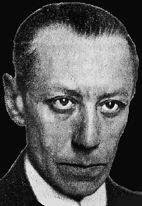
To make savings on electricity and power, I rarely use any lighting in the house, except for the TV, and even that, I only allow so many hours to watch the set. I don’t have cable, so what I watch on the set is mostly my DVD collection. Rice, vegetable stock for soup, and beans are pretty much my diet these days. Thank God that there is a local library in my neighborhood, so I can in a sense read books for free. To remove myself from all the abstractions in the world sets me free to use my imagination. I often try to imitate the actor Max Schreck who played Count Orlok, for the purpose of attempting to ground myself in a world that is shifting away from me. It has been noted that he lived in “a remote and incorporeal world” and that he spent time walking in the forest.
I don’t have any paintings or images on the wall. Nor do I have mirrors. I have a tendency to forget what I look like, and I sort of like being in a situation where I can never describe myself to anyone. My only desire is to look like Count Oriok, and therefore why do I need a mirror?
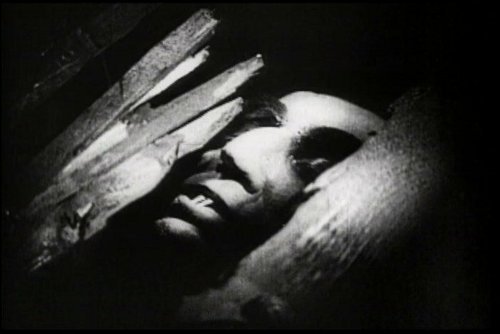
Before dawn hits the sky, I like to wander around my spacious backyard, which is so full of trees and bushes. I like to lie on the dirt and look upwards towards the fading stars, and the reflection of nearby neon lighting of Glendale, and imagining myself coming from this dirt, yet being part of the sky. As I get older, I try to imagine what death feels like. I don’t see it being a painful experience, but neither is it an abstract plane. I sometimes feel that I have died, and I’m just floating around the residence with not a purpose or plan.
Published on September 06, 2014 12:02
September 5, 2014
September 5, 2014

September 5, 2014
It is hard work to do nothing. I’m always filling my day with things to do, to avoid the nothing. Once I wake up in the morning, there are the few minutes of dread where nothing is happening. I’m trying to set my mind on what the day will be like. I check my calendar, and like a lot of people, I’m obsessed with making lists. If I have less than five things to do that day, I feel depressed. Then slowly the feeling of guilt that you should be producing something, even if it’s not important. I open up my computer and look at the blank screen. Nothing is happening. I then look out my front window, facing Waverly Drive, and I see no one. Usually there are people walking their dogs at this time in the morning, but alas, I see only a fat furry cat walking down the sidewalk by he or her self. A dog when is either on a leash or free from it, always walks without a purpose or direction. A cat walks going to a specific direction in mind, and is rarely side-tracked by anything, unless someone approaches it. There is one moment which becomes tense, when I see the cat walk behind a parked car, and I wonder if I will see it again exiting that car. The moment I see the cat again, I feel a sense of relief. He or she then enters into an opening of the bush, and disappears.

For me, there is no feeling of the cat being cute, or beautiful. I simply like to see it walking down the sidewalk with a sense of purpose or plan. This actually inspires me to get back to my writing. There is a piece of music that causes me a great deal of anxiety and it’s John Cage’s “4’33.” It has a strict format where the piano player sits behind his keyboard and doesn’t play anything for the duration of four minutes and thirty-three seconds. People think this is a work of silence, but in fact it is totally the opposite of silence. When you are in a concert hall or theater “hearing” this piece, you are immediately aware of the sounds around you - perhaps a nervous cough, a clearing of the throat, a fart, or the fear of making a farting noise, air conditioner, heating vent, shuffling of feet, and so forth.
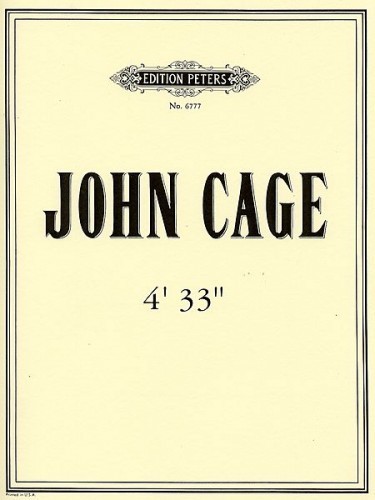
When I write I need consistent sound around me. Either music or outside ambient sounds, for instance traffic noise, as well as a child screaming down the block from me. Each sound is like someone hitting me with an live electric wire, which gets my brain to jump. I work in a lonely place, which is pretty much my head. This is no longer a bad thing at all. To actually feel the space between yours truly and the world is an area that I can measure and fill up images with, but I also can subtract imagery as well. The thing is you just have to control the noise around you, and something like “4’33” is actually chaos. Because you can’t really control the noise level or silence in one’s life. So setting everything aside, you sit there for “4’33” in quietness that is impossible, and also the anxiety or blissfulness knowing that things will happen again at 4 minutes and thirty-four seconds. It has a beginning and an end.
It’s very work-orientated. We usually have 8 hours a day to work. Within those 8 hours, we have two fifteen minutes breaks, and usually an half-n-hour lunch. Or it could be an hour lunch. Nevertheless this sets a schedule for the entire day that one can’t really question or get out of, unless you call in sick. Or like me, unemployed. When you don’t have a job, you’re facing a series of moments that cannot be filled. So one is left with the anxiety of confronting ‘nothing.' Drinking is a very simple way of dealing with the sense of time wasting away. Because at least you are taking something that sort of comments on time passing, and you reflect on the failure or happiness of those moments.

I’m trying to do away with my vices, so I just focus on being on the entrance to nothing. I want to face that void, and be contented with the blankness that will come upon me. That, hasn’t happened yet. I remember seeing a performance by Yves Klein called “Monotone-Silence Symphony” in New York, and what the piece consists of is an orchestra of 70 musicians and singers performing a D major chord for 20 minutes, followed by 20 minutes of silence. The members of the orchestra are instructed not to move and just sit on their seats. It’s a tougher piece than “4’33” because we know that the silence will last exactly 20 minutes. So one is getting around 16 minutes of more silence. But we do get the contrast between sound and silence in this work. I have met someone who went to one of the performances and felt that the work failed, because the silence part was not done properly.
Daniel Moquay, who is in charge of the Yves Klein archive and estate was quoted regarding a performance of the piece that took place in a Parisian church: ““The door of the church was open, and a pigeon came in and sat where everyone could see him,” he said. “During the 20-minute silence, he did not move at all. It was kind of incredible. And then when the silence was over, he left. ”
Published on September 05, 2014 11:06
September 4, 2014
Jacques Mesrine's "The Death Instinct"
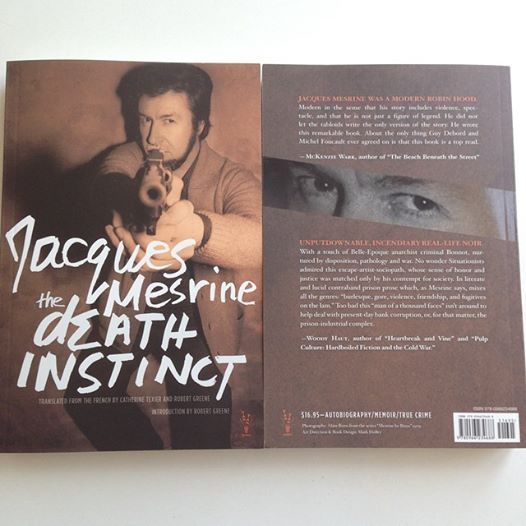
"The Death Instinct" by Jacques Mesrine. Translated from the French by Catherine Texier and Robert Greene. Introduction by Robert Greene. Designed by Mark Holley. Published by TamTam Books. ISBN: 978-0966234688
Published on September 04, 2014 14:24



